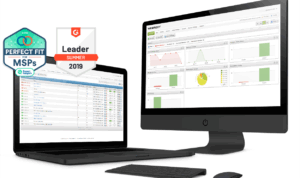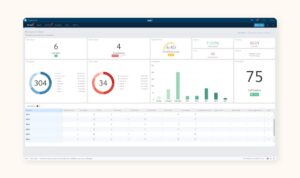Expense reimbursement software has revolutionized the way businesses handle employee expenses, creating a streamlined process that reduces errors and saves time. In today’s fast-paced work environment, ensuring that employees are reimbursed efficiently is crucial for maintaining morale and productivity. By automating expense reporting and approvals, companies can not only enhance their financial accuracy but also foster a culture of transparency and trust among staff members.
This software provides various features such as receipt scanning, real-time tracking, and integration with accounting systems, enabling a comprehensive solution that caters to the needs of both employees and finance teams. With the right expense reimbursement software, organizations can transform their financial management practices, making it easier to keep track of expenditures while ensuring compliance with company policies and regulations.
In today’s fast-paced digital age, the ability to navigate the vast landscape of information technology is no longer a luxury; it’s a necessity. Digital literacy encompasses a range of skills that enable individuals to effectively and critically use digital tools, platforms, and resources. This article delves into the significance of digital literacy, its implications for personal and professional development, and the steps we can take to enhance our digital skills.
Understanding Digital Literacy
Digital literacy goes beyond just knowing how to use a computer. It involves the ability to find, evaluate, and communicate information in various digital formats. This includes understanding online safety, recognizing credible sources, and using digital tools to create and share content. In essence, it’s about being an informed and responsible digital citizen.
The Role of Digital Literacy in Education
In educational settings, digital literacy is paramount. Schools and universities are increasingly integrating technology into their curricula. For students, being digitally literate means they can access a wealth of information, collaborate with peers online, and develop critical thinking skills. Furthermore, educators must also embrace digital literacy to effectively teach these skills and prepare students for future challenges.
Enhancing Teaching Methods
Teachers who are digitally literate can utilize various educational technologies, such as learning management systems, interactive platforms, and multimedia resources. These tools not only make learning more engaging but also enhance the overall educational experience. By incorporating technology into their teaching methods, educators can reach a diverse range of learning styles and promote a more inclusive environment.
Digital Literacy in the Workforce
As the job market evolves, so do the skills required for employment. Employers are increasingly seeking candidates who possess strong digital skills. From basic computer operations to advanced data analysis, being digitally literate can significantly enhance one’s employability. Professionals who can effectively use technology are often seen as valuable assets to their organizations.
Adaptability and Lifelong Learning
In a world where technology is constantly changing, the ability to adapt is crucial. Digital literacy fosters a culture of lifelong learning, encouraging individuals to continually seek out new knowledge and skills. This adaptability not only benefits employees in their current roles but also prepares them for future career advancements and transitions.
The Impact of Digital Literacy on Society
Beyond personal and professional implications, digital literacy plays a vital role in shaping society. In an era where misinformation can spread rapidly, being able to critically evaluate information sources is essential for informed citizenship. Digital literacy empowers individuals to engage in meaningful discussions, understand complex issues, and make informed decisions.
Participating in the Digital Economy
The digital economy is becoming increasingly significant, with many businesses operating online. Individuals who are digitally literate can participate more fully in this economy, whether through e-commerce, remote work, or digital entrepreneurship. Understanding technology can open doors to new opportunities and innovations that drive economic growth.

How to Improve Digital Literacy
Improving digital literacy is a journey that can be undertaken by anyone, regardless of their starting point. Here are some effective ways to enhance digital skills:
1. Online Courses and Workshops
Many platforms offer free or low-cost online courses tailored to various skill levels. Websites like Coursera, edX, and Khan Academy provide valuable resources for individuals looking to improve their digital literacy.
2. Community Programs
Local libraries and community centers often host workshops and classes focused on digital skills. Participating in these programs can provide hands-on experience and access to knowledgeable instructors.
3. Practice and Exploration
Hands-on experience is one of the best ways to learn. Individuals should feel encouraged to explore different technologies, try out new software, and engage with various digital platforms.
4. Staying Informed
Technology is ever-evolving, so staying informed about the latest trends and tools is essential. Following tech blogs, podcasts, and social media channels can help individuals keep their skills up-to-date.
Conclusion
In conclusion, digital literacy is a crucial skill set for navigating today’s increasingly complex digital landscape. Whether in education, the workforce, or society at large, being digitally literate empowers individuals to thrive in a technology-driven world. By prioritizing the development of digital skills, we can enhance our personal growth, contribute to a more informed society, and be better prepared for the future.
FAQ Summary
What is expense reimbursement software?

Expense reimbursement software is a tool that automates and streamlines the process of tracking and managing employee expenses, ensuring timely and accurate reimbursements.
How does expense reimbursement software work?
This software allows employees to submit expenses digitally; managers can review and approve them, while finance teams can process reimbursements efficiently.
Can expense reimbursement software integrate with other accounting tools?
Yes, many expense reimbursement software options can integrate with existing accounting and financial management systems to enhance data accuracy and reporting.

Is expense reimbursement software suitable for small businesses?
Absolutely! Expense reimbursement software can benefit businesses of all sizes by simplifying expense tracking and improving financial oversight.
What features should I look for in expense reimbursement software?
Key features to consider include receipt scanning, mobile access, expense categorization, policy compliance checks, and integration capabilities.





















